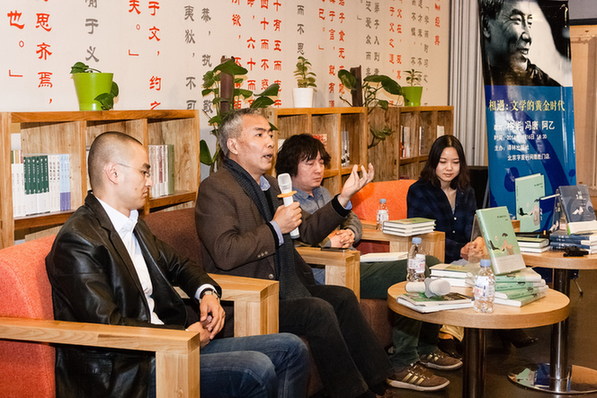 |
|
Ge Fei (left) shares with readers his opinions about the past glory and present state of Chinese literature at his book launch. Provided to China Daily |
There was a time when a novel easily sold a million copies, short-story writers were megastars and penning a screenplay felt like a step down.
Sadly, that golden era for literature, the 1980s in China, has long gone.
"It was the best of times when literature assumed the most important role of all," Ge Fei, renowned writer and professor with the Department of Chinese at Tsinghua University, said at the launch of his latest book Encounter in Beijing.
|
 |
"Back then, it took the functions of other things and people talked about literature instead of the economy."
Ge made his name in the 1980s with engulfing, experimental short stories. Encounter, published by Yilin Press, is a collection of Ge's favorite short stories he has written over the past three decades.
Lost Boat, one of his early works, won him instant, nationwide fame. He was approached by film director Zhang Yimou, who wanted to adapt the story into a film.
"But I was too embarrassed to tell anybody about the offer," Ge recalls. "Back then, fiction-writing was such a holy calling - so much higher than everything else that when you're writing a script for a film or trying to make money out of it, you feel it as a backslide."
The liberal, culturally enriching period, concurrent with the economic reform, saw writers and artists as the elite whose opinion everyone else sought and looked up to. "It's hard to imagine a million people lining up, waiting to read one's latest article, but it was true," Ge recalls.
|
|
|
|
|
|
|
|
